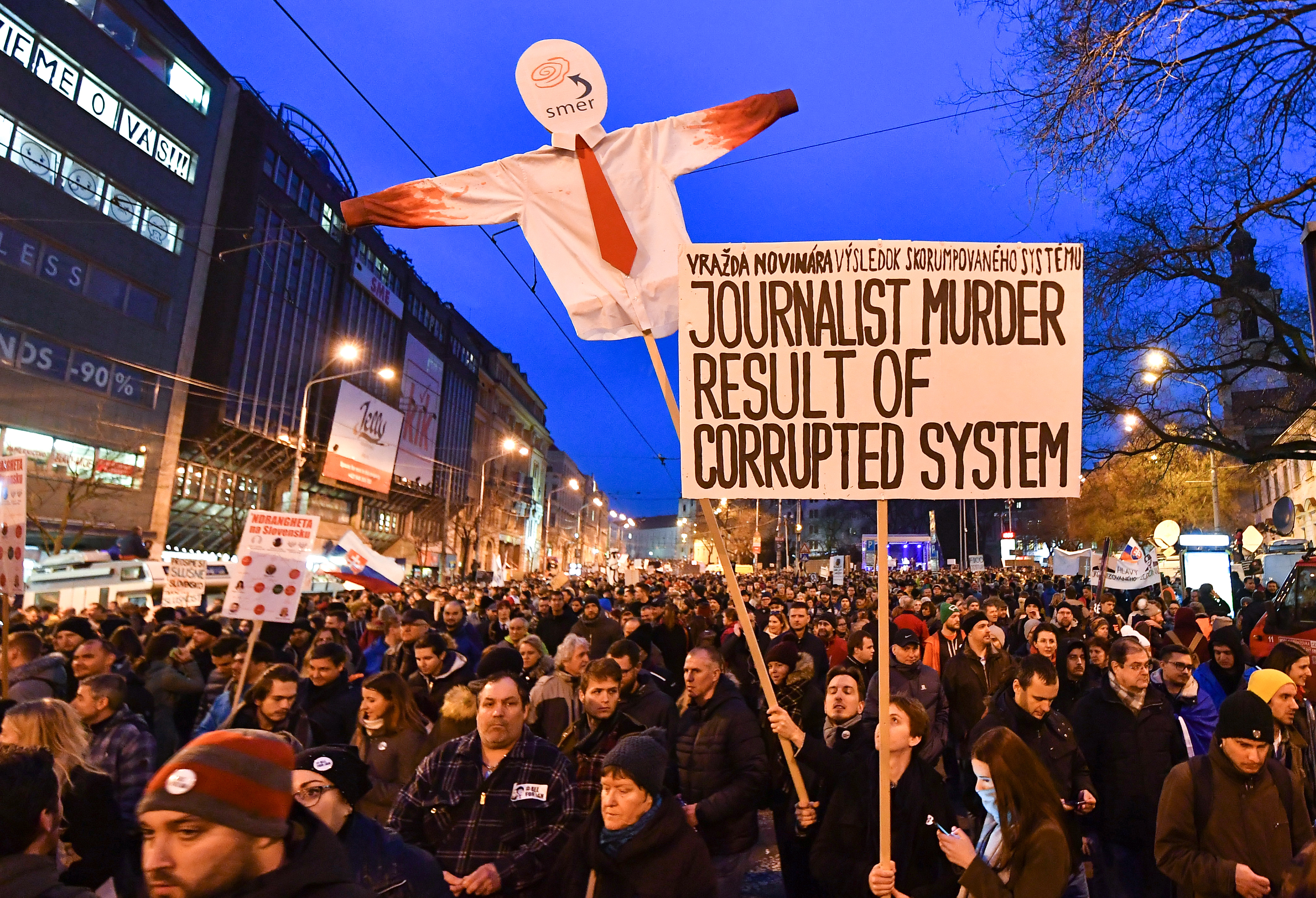Analysis
Jan Baranek, from Polis Agency, analysed the fragile political situation in the Country. The murder of the journalist and of his fiancée triggered mass protests in cities nationwide. Prime Minister Fico resigned in the wake of alleged links of national institutions with organized crime (there was mention of Mafia involvement). Hanging questions on the future, while Christian-Democrat political representatives fail to find the strength and the cohesion needed to lead the Country

Thebrutal murder of journalist Jan Kuciak and his fiancée Martina seems to have opened Pandora´s box of Slovakia’s political life. The alleged contacts between persons associated with criminal life – including suspected links to the Italian Mafia – and political representatives of the State that Jan Kuciak had been investigating and writing about, resulted in dozens of street protests in cities across Slovakia and subsequent serious political crisis. Interior Minister Roberto Kalinak resigned; Prime minister Robert Fico announced his resignation; President Andrej Kiska said he would ask Deputy Prime Minister Peter Pellegrini (interim Culture Minister after Marek Madarcic stepped down) to form a new government, as suggested by Fico himself. We addressed the possible scenarios with political analyst Jan Baranek from Polis Agency.
How would you describe the immediate causes of the current critical political situation in Slovakia? “The murder of the journalist and his fiancée was the trigger of this situation along with the unfortunate statement of a police officer who said at the very beginning that the murder was probably linked to Kuciak´s investigation. The problem is that it was only his assumption, not supported by evidence, which sparked off reactions that led to the present situation in our country.”
Prime minister Fico offered his resignation to the President of the Republic yesterday, providing compliance with a set of conditions regarding the government’s formation. What are the possible scenarios? Will the resignation of Minister Fico and of Interior Minister Robert Kalinak be sufficient for citizens? Are preterm parliamentary elections still on the agenda?
“Fico’s requests to President Kiska are not conditions. All he did was to recall the regular Constitutional procedures by inviting him to respect the results of the parliamentary elections of 2016. A new government should be formed on these foundations. If someone insisted on preterm elections under any circumstances, it would practically be classified as an attempt to start a revolution.”
The representatives of the coalition have openly criticized opposition parties and warned citizens on the utter chaos the Country would plunge into in case of preterm elections and possible victory of the opposition. How would you describe this rhetoric? Is such a development possible? “If preterm elections were approved by Parliament, which would require the votes of a constitutional majority (90 votes out of 150), there would be no risk of chaos. It could only occur if somebody attempted to enforce the elections out of this constitutional framework. I see the fact that the coalition strongly criticizes members of the opposition as the normal rhetoric pertaining to political disputation, and that’s how it should be seen also by citizenry.”
Do you think that the temper of public opinion in Slovakia will calm if the Prime Minister and the minister of internal affairs resigned, as demanded by protestors who took to the streets? Would this be enough to stabilize the situation? “The problem is that organizers of demonstrations have made new requests after the coalition’s declaration yesterday. They insist on preterm elections. And this is not constitutional, you cannot organize preterm elections from the streets. Not to mention that the results of preterm elections might not be as satisfying as they expect. What would happen then? Another preterm election? That would be anarchy. However, there exists a legal, accepted instrument to reach preterm elections – a referendum.”
The latest surveys show that if the elections were held today Christian-Democrats might have a chance to return to parliament. How would you describe the current situation of Christian political life in Slovakia? “Christian forces are fragmented, because Christian politicians are members of various political parties. The only Party with a professed Christian background (the Christian Democratic Movement) is currently out of parliament. So, we witness a deep crisis of Christian democracy. They should find a leader capable of uniting these forces into one political party that would gain a significant number of votes. 80% of Slovaks claim to be of Christian faith, so there is a fair chance they might succeed. But for now, Christian Democrats are unable to put together a vision of State development based on the values rooted in Christian tradition that we have in Europe. On top of this, it is unable to articulate these values explicitly, nor to translate them into a language comprehensible and attractive to voters. What we need is a competent Christian leader.”